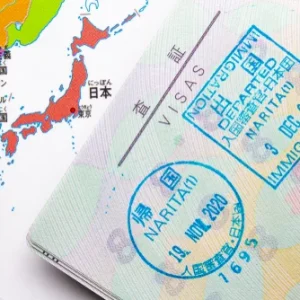What is “Intra-Company Transferee” Visa in Japan?
August 6, 2021
What is the “Intra-company Transferee” status?
“Intra-company Transfer” is a status of residence for those who are transferred/ reassigned to work for an office in Japan (Branch or Subsidiary) through a foreign affiliated company or organization. There are limitations for the period for which the transferee may stay.
The period of stay can either be 5 years, 3 years, 1 year, or 3 months.
Activities and Application Requirements for “Intra-company Transferee” Visa
“Intra-company transferee” activities are those that require skills and knowledge in the fields of natural sciences, humanities, and so forth. Menial labor is not permitted under this visa. The work that can be performed is the same as an “Engineer/Specialist in Humanities/International Services” visa, but the requirements for an “Intra-company transferee” visa will differ. As long as the transferee has been working at a foreign affiliated company to which the company has had a capital relationship for at least the past year, there are no academic requirements as compared to the “Engineer/Specialist in Humanities/International Services” visa.
Important Details
As mentioned above, the scope of work is the same for both “Intra-company Transferee” and “Engineer/Specialist in Humanities/International Services” visas. But when resigning from the company that has sponsored the visa, there will be differences in procedures that the visa holder will need to pay attention to depending on their status of residence.
For example, if you were to change jobs with the “Engineer/Specialist in Humanities/International Services” visa, if the nature of the work is the same, you may only need to submit an online notification regarding your affiliated organization.
However, if you are a foreigner with an “Intra-company Transferee” visa and are changing jobs, you must apply for a “change in status of residence” since the sponsor of the visa has changed, and the foreigner will no longer be a transferee.
In addition, even if a foreigner wishes to change their “Intra-company Transfer” visa to an “Engineer/Specialist in Humanities/International Services” visa when changing jobs, the change of status will likely not be approved, and the foreigner will not be able to work in Japan unless the application requirements such as educational backgrounds are met.
Employment Contract and Salary Payment
We have covered that the “Intra-company transferee” and “Engineer/Specialist in Humanities/International Services” visas share the same requirements for working in Japan, and both are permitted for similar nature of work. However, there are other differences besides the above requirements. A careful consideration is necessary when deciding which status of residence to apply for.
In the case of an “Engineer/Specialist in Humanities/International Services” visa, it is required to conclude a labor contract with a Japanese company and receive a salary.
On the other hand, in the case of an “Intra-company transferee” visa, the transferee may remain under the same labor contract and payroll from the overseas office.
If you do not want to receive any salary from the Japanese company, you will inevitably have to choose the “Intra-company transfer” visa.
The documents required for application differ depending on the status of residence you are applying for, so it is important to confirm what documents are required for each type of application before deciding.







